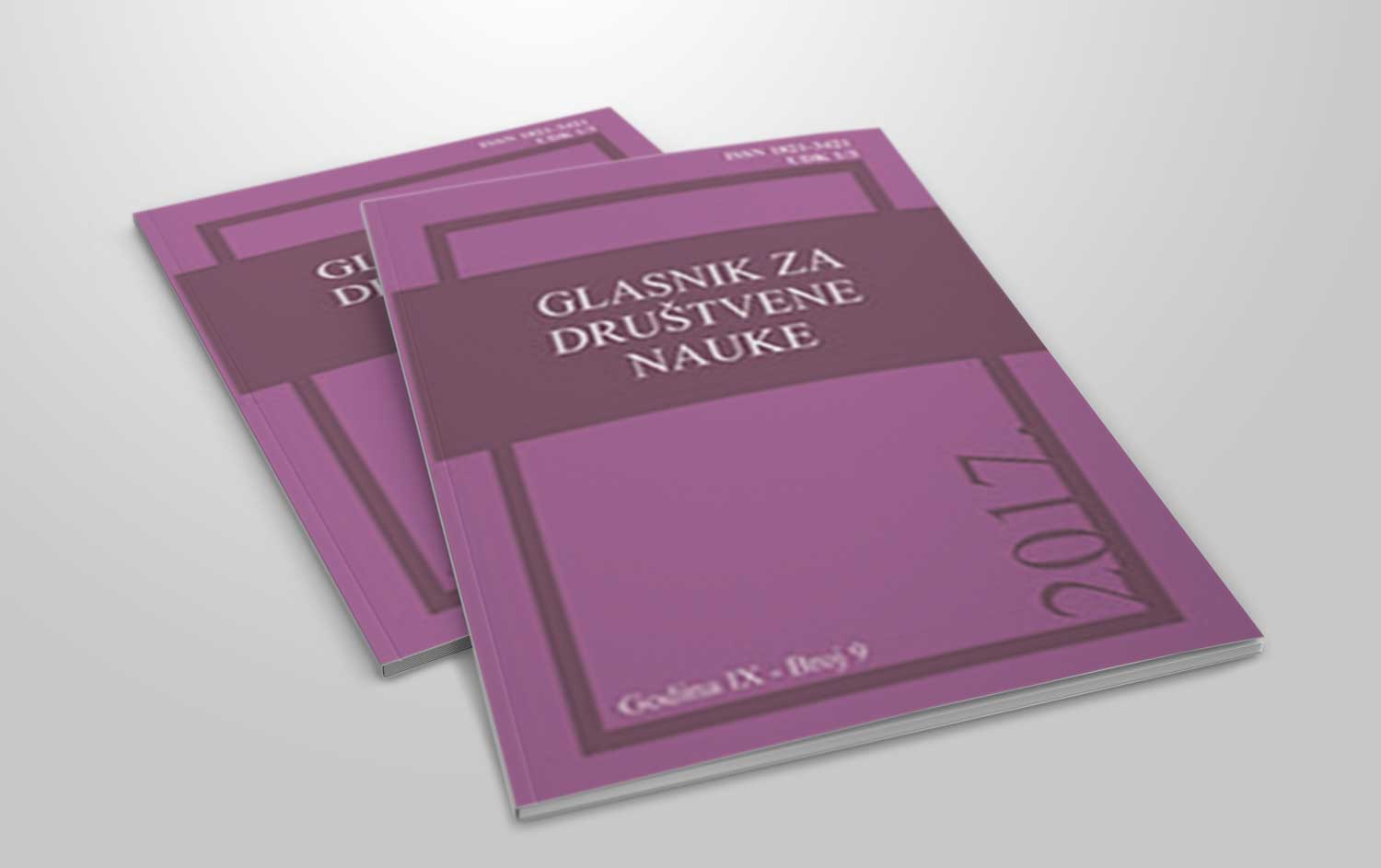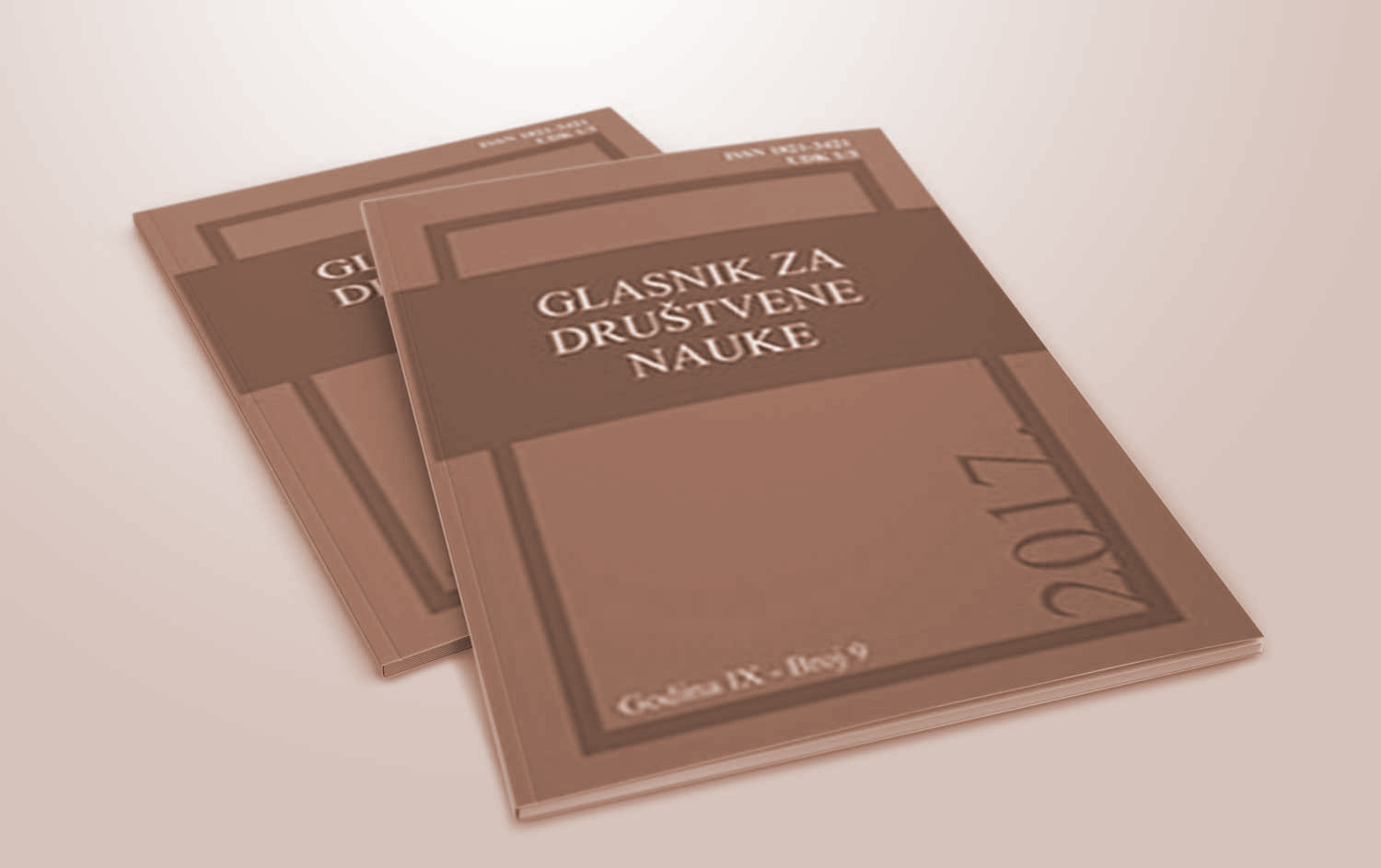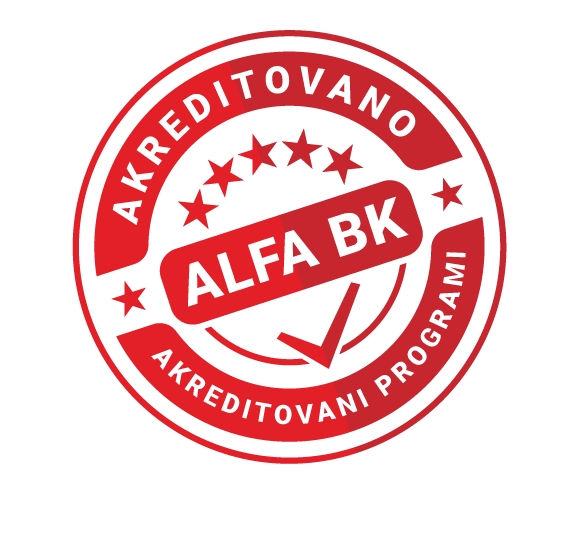Faculty of Finance, Banking and Auditing
The Faculty provides the ability to gain knowledge, develop skills and business abilities on all levels of higher education, including basic, master’s and doctoral academic programs.
ABOUT THE FACULTY
The Faculty of Finance, Banking and Audit is the FIRST PRIVATE ACCREDITED FACULTY with experience spanning over nearly three decades.
HIGHLY QUALIFIED ACADEMIC STAFF Today, the Faculty of Finance, Banking and Auditing is combined with the Alfa BK University, which allowed students to receive knowledge from highly competent teachers of information technologies, management and foreign languages in addition to economics tutors, who monitor the relevant events and constantly improve. Multidisciplinarity that combines theory and practice serves as the guarantee of success in modern business environment and a competitive advantage of our faculty.
SIMPLE DIPLOMA NOSTRIFICATION Education plans are in complete accordance with the Bologna declaration, which includes mandatory practice during training and allows to easily nostrify our diploma in any corner of the world.
REMOTE LEARNING Teaching completely follows relevant events. If you are employed, you can access training modules at any time through the state-of-the-art E-Class system: New projects and implementation of modern teaching methods (remote learning) have given new value to the faculty. The faculty successfully cooperates with higher educational institutions across the world.
STUDENTS Degrees in the areas of trade, banking, accounting and auditing have been granted to over 5,000 students. Through the GRADUATES Association, we monitor careers of our former students who currently manage successful companies in the country and abroad, hold leading positions in state and private services, from local self-governance to ministries. They are our recommendation. Thanks to them, we are able to introduce new training methods, monitor technical and technology innovations and remain a step ahead of everyone else.
JOIN THE BEST!
JOIN THE BEST!
ADVANTAGES OF THE FACULTY
Training programs of the faculty are intended for students who have the desire and the need to receive quality training and acquire knowledge and skills in the field of economics that will help them play an active part in the modern business world.
The Faculty provides future students with practical knowledge and helps develop the spirit of entrepreneurship that allows them to work in companies or start their own business.
HOW TO BUILD A SUCCESSFUL CAREER?
Graduates of our department have never had any problems with employment. They have tested the knowledge obtained by working in domestic or foreign companies and building successful careers. Our graduates today occupy high positions in all spheres of the society, work in successful companies in the country and abroad, serve as managers in financial institutions and state institutions from local self-governance authorities to ministries.
Basic academic training continues for 4 years and is rewarded with 240 ESPB points. After completing the training program, the student receives the degree of a bachelor in economics regardless of the module chosen.
After completion of basic training, the student may decide to continue education under master’s program for one year or to start a career. Many students continue training in renowned universities across the world; some of them start successful academic careers as faculty tutors or business careers in various foreign companies.
Training is conducted in small groups and through mentorship, by establishing a direct contact between the student and the tutor. Emphasis is placed on individual and creative development of students, team work, acquisition of practical knowledge and the use of modern technologies.
The quality of the study process is further enhanced by on-the-job training of specialists, as well as the ability to undergo practical training in country’s leading companies.
HISTORY OF THE FACULTY
The Faculty was founded on May 15, 1993 in Реć as the charity foundation of the Karić family. By the decision on foundation made by the Braća Karić Foundation and the Karić Brothers Foundation, the Janićije and Danica Karić Faculty of Trade and Banking was created. The Academy officially began its work on September 22, 1993 in the city of Реć.
IN COURSE OF OVER 20 YEARS OF ITS EXISTENCE, THE FACULTY OF TRADE AND BANKING HAS EVOLVED FROM A SMALL ENTREPRENEURIAL FACULTY CREATED WITH LOTS OF LOVE AND CARE TO A FACULTY WITH MODERN VARIOUS STUDY PLANS AND PROGRAMS.
The history of development of the Faculty may be presented as four stages:
The first lasted from 1993 to 1997, from the moment of founding the Academy to the change of name to the Janićije and Danica Karić Faculty of Trade and Banking. It is important to remember that a group of 60 students from former Soviet countries were studying at the faculty in Реć at the time.
The second stage, the shortest and most difficult of all, defined by external environment factors and complex political and economic conditions in the country, was signified by transfer of the Faculty from Реć to Belgrade. Over the course of a year, the Faculty through great efforts managed to preserve integrity, resources and people who had previously become involved in the idea of the Janićije and Danica Karić Faculty of Trade and Banking.
The third stage of development that started in 1999 and continues to this day has confirmed that the Faculty has management to get through its childhood diseases related to its administration and economics, that after its founding and run-in it has proven itself in the most complicated conditions possible for any organization. Overcoming all emerging difficulties, caused first of all by deep misunderstanding of its entrepreneurial spirit by the domestic environment, the Faculty managed to create a basis for successful growth and development in accordance with modern international trends in the field of higher education. Today, the Faculty of Finance, Banking and Auditing is combined with the Alfa BK University, which allowed students to receive knowledge from highly competent teachers of information technologies, management and foreign languages in addition to economics tutors. Introduction of new teaching methods (remote learning) added new value to the Faculty.
The fourth stage of development of the Faculty will be marked by the years to come. During this period, all values and knowledge that were carefully created and collected during previous will come to the forefront in order to enhance competitive advantages and preserve leading positions in the fields of specialization of the Faculty.
DEAN’S SPEECH
Dear applicants!
I’m glad to welcome you at the Faculty of Finance, Banking and Auditing, a part of the Alfa BK University, the first private University of our country founded in 1993. Taking pride in the long-term tradition of existence within the higher education system, we are still devoted to the idea of continuous improvement of training programs, teaching methods and professionalism of the academic staff in response to dynamic and competitive business environment.
The Faculty of Finance, Banking and Auditing is one of the leading higher educational institutions in the field of economics, accounting and trade. Our goal is to educate students who will successfully build careers in banking sector, auditing, transnational companies and state sector. The structure of training programs, in addition to containing theoretical and practical knowledge, stimulate students to think analytically, to be creative and innovative in order to be able to face challenges of modern business and market environment. Innovative approach to training, work in small groups, high competencies and professionalism of tutors and modern information means allow students to gain knowledge and skills required for leading positions in the business world.
The Faculty urges its students to be open to new ideas, methods and business solutions. Well-developed international cooperation with related faculties provides for the possibility of student exchange and completing professional practice in foreign companies. Therefore, the students become able to apply knowledge and skills obtained in foreign educational and business environment in business of domestic companies and contribute to their better business fulfillment, as well as development of their country.
I invite you to visit the Faculty’s website to learn more about our training programs and latest achievements.
We are looking forward to you becoming students of the Faculty of Finance, Banking and Auditing and using your knowledge, skills, views and values in the future to create a more successful economy and better society for all of us.
MISSION AND VISION
FACULTY’S VISION
The vision of the Faculty of Finance, Banking and Auditing of the Alfa BK University is reflected in providing modern, dynamic, promising, attractive and high-quality training programs and contents that will allow its students to gain exclusive knowledge, as well as professional independence, integrity, self-realization, the ability to assess local and global challenges critically and adapt to them. The Faculty of Finance, Banking and Auditing is one of the leading interdisciplinary educational institutions in the field of economics, finance, banking, auditing and business in the region of Southeastern Europe. The Faculty has gained international recognition; it promotes the principles of competence, openness, tolerance and social support, and serves as a suitable environment for sharing quality knowledge. The Faculty also has long-lasting traditions of international cooperation, studies, innovative solutions in the field of training and active involvement of students as it strives to position itself as the regional leader in provision of high-quality educational services.
FACULTY’S MISSION:
The mission of the Faculty is aimed at creating and maintaining complex learning environment that motivates and nurtures excellence in education and breeds experts and professionals in various areas thanks to their innovative training programs. By forming and developing professionalism and integrity, the spirit of openness and traditions, creativity and innovation, academic freedom and strive for research, interdisciplinary approach, ethical values, moral principles and social responsibility, the Faculty strives to provide high-quality education and teaching, as well as to get its students actively engaged in practical work, research projects, clinics, analysis of thematic cases, theoretical and practical tasks. Therefore, the Faculty serves as a hatcher of sorts for employment of its students, as well as an environment geared towards their needs, providing them with exceptional possibilities for training, student practice, research and social involvement that help create future business leaders capable of solving complex economic, financial and business problems in the real world. the mission of the Faculty of Finance, Banking and Auditing is also aimed at development of the necessary intellectual abilities, competences and flexibility of its students to help them become productive, sought-after and publicly recognized citizens who are able to develop their successful business careers. The Faculty is traditionally aimed at upholding and nurturing the spirit of family values and as such supports generation of new ideas, competences, knowledge and skills contributing to development of family business.
KEY VALUES
IZUZETNOST, PROFESIONALIZAM I INTEGRITET,
OTVORENOST, TOLERANCIJA I RAVNOPRAVNOST,
KREATIVNOST I INOVATIVNOST,
AKADEMSKE SLOBODE I PREISPITIVANJE STVARNOSTI,
INTERDISCIPLINARNI PRISTUP,
ETIČKE VREDNOSTI I MORALNI STANDARDI,
LIDERSTVO I SARADNJA SA AKADEMSKIM I POSLOVNIM PARTNERIMA,
AFIRMACIJA PORODIČNOG BIZNISA,
DRUŠTVENA I EKOLOŠKA ODGOVORNOST,
PROFESIONALNI I LIČNI RAZVOJ POJEDINACA.
EXCLUSIVENESS, PROFESSIONALISM AND INTEGRITY,
OPENNESS, TOLERANCE AND EQUALITY,
CREATIVITY AND INNOVATION,
ACADEMIC FREEDOM AND RE-LEARNING OF REALITY,
INTERDISCIPLINARY APPROACH,
ETHICAL VALUES AND MORAL PRINCIPLES,
LEADERSHIP AND COOPERATION WITH ACADEMIC AND BUSINESS PARTNERS,
SUPPORT OF FAMILY BUSINESS,
SOCIAL AND ENVIRONMENTAL RESPONSIBILITY,
PROFESSIONAL AND PERSONAL GROWTH OF INDIVIDUALS.
PROGRAMS
Over 20,000 have graduated the FACULTY OF FINANCE, BANKING AND AUDITING with degrees in finance, trade, banking, accounting and auditing.
The Faculty of Finance, Banking and Auditing has accredited training programs:
BULLETIN OF SOCIAL SCIENCES
The Bulletin of Social Sciences is an interdisciplinary freely accessible scientific journal published by the Faculty of Finance, Banking and Auditing of the Alfa BK University in Belgrade, Republic of Serbia. The Bulletin of Social Sciences has been published annually since 2009; in 2021, the Ministry of Education, Science and Technological Development of Serbia classified it in the List of Categorized Science Journals as a national journal of category M53. The articles submitted undergo double anonymous reviewing; all published works are available at the journal’s web page www.gdn.rs free of charge.
The magazine is published once a year, in paper and electronic form, and includes qualitative and abstractive original scientific articles, synoptic works, expert articles, prior announcements, messages, analyses, scientific criticism, polemics, reviews, interviews as well as reviews of published books, study books, monographs, scientific conferences and other scientific publications. The Bulletin of Social Sciences is a bilingual journal that publishes articles in two languages, English and Serbian; publication is free for the authors submitting the articles.
The Bulletin of Social Sciences is indexed in the Central and Eastern Europe Online Library (CEEOL). The journal publishes high-quality theoretical works, empirical research, comparative analysis, excerpts from studies and professional articles from a wide range of social sciences such as economics, finance, management, marketing, accounting, auditing, international relations, sociology, philosophy, business computer science, culture, political studies and law, as well as other related interdisciplinary social areas. From this point of view, the Bulletin of Social Sciences is mostly intended for members of the academic community, researchers, practitioners, decision-makers and problem-solvers, students as well as broad public and members of the social community. The journal especially encourages foreign authors, students and young researchers to publish their articles and scientific achievements.
Submission of applications and articles
The works prepared in accordance with the technical instruction for authors and the instruction for formating of references shall be submitted to the e-mail address of the journal: gdn@alfa.edu.rs
ADDRESS AND CONTACTS OF THE EDITORIAL OFFICE
Publisher
ALFA BK UNIVERSITY
Faculty of Finance, Banking and Auditing
Categorization of the Journal by the Ministry of Education, Science and Technological Development of Serbia: M53
The Journal is published annually.
Works in the Journal are subject to double anonymous reviewing.
Address of the Editorial Commission of the Bulletin of Social Sciences
Palmira Toljatija 3,
11070 New Belgrade, Republic of Serbia
Contact
Chief and Responsible Editor: Assoc. Prof. Dr. Lidija Madžar, Doctor of Economic Sciences
Proofreading and correction of the Serbian text: proofreading team of the Alfa BK university
Proofreading and correction of the English text: Mrs. Branka Kovačević, Master of Philological Sciences
Text breakdown and preparation for printing: Mr. Vladimir Šašo, Master of Information Sciences
Phone numbers: +381 11 2609 754 i +381 11 2694 847
ISSN 1821-3421 (printed version)
e-ISSN 2683-4936 (online version)
E-mail address of the editorial office: gdn@alfa.edu.rs
Web page of the journal: www.gdn.rs
EDITORIAL COMMISSION
Editorial Commission of the Journal
Published by:
Faculty of Finance, Banking and Auditing
ALFA BK UNIVERSITY
Publisher:
Dr. Jozefina Beke Trivunac
Editor-in-chief:
Dr. Dejan Dašić (Faculty of Finance, Banking and Auditing of the Alfa BK University, Belgrade)
Editorial team:
Dr. Jozefina Beke-Trivunac (Faculty of Finance, Banking and Auditing of the Alfa BK University),
Dr. Marijana Joksimović (Faculty of Finance, Banking and Auditing of the Alfa BK University),
Dr. Drago Cvijanović (Faculty of Hotel Management and Tourism, University of Kragujevac),
Dr. Nemanja Pažin (Alfa BK University, Belgrade),
Dr. Bobana Berjan Bačvarević (Alfa BK University, Belgrade),
Dr. Dejan Sekulić (Faculty of Hotel Management and Tourism, University of Kragujevac),
Dr. Mirko Blagojević (Institute of Social Sciences, Belgrade),
Dr. Vladan Đorđević (Faculty of Philosophy, University of Belgrade),
Dr. Jonel Subić (Institute of Agricultural Economics, Belgrade),
Dr. Predrag Marković (Institute for Recent History, Belgrade),
Dr. Pavle Milenković (Faculty of Philosophy, University of Novi Sad)
Dr. Vladimir Milisavljević (Institute of Social Sciences, Belgrade),
Dr. Vojin Rakić (Institute of Social Sciences, Belgrade),
Dr. Mirjana Radović-Marković (Institute of Economic Sciences, Belgrade),
Dr. Petar Veselinović (Faculty of Economics, University of Kragujevac),
Dr. Lidija Madžar (Faculty of Finance, Banking and Auditing of the Alfa BK University),
Dr. Stanimir Đukić (Faculty of Finance, Banking and Auditing of the Alfa BK University),
Dr. Drinka Peković (Faculty of Finance, Banking and Auditing of the Alfa BK University),
Dr. Suzana Balban (Faculty of Finance, Banking and Auditing of the Alfa BK University)
Board of the Journal:
Dr. Ljubomir Madžar (Alfa BK University, Belgrade),
Dr. Jovan Babić (Faculty of Philosophy, Belgrade),
dr H. James Birx (Canasius Coledge New York),
Dr. Vukašin Pavlović (Faculty of Political Sciences, Belgrade),
Dr. Phillipe Schmitter (European University Institute Florence)
Technical secretary
Mr. Vladimir Šašo
Proofreading and correction:
Proofreading team of the Alfa BK University
Proofreading of the English text:
Brankica Kovačević, Graduate Student
Reviewers:
Dr. Marijana Joksimović (Faculty of Finance, Banking and Auditing of the Alfa BK University),
Dr. Aleksandar Prnjat (Alfa BK University, Belgrade),
Dr. Nemanja Pažin (Alfa BK University, Belgrade),
Dr. Jozefina Beke-Trivunac (Faculty of Finance, Banking and Auditing of the Alfa BK University),
Dr. Dražen Jovanović (Alfa BK University, Belgrade),
Dr. Mirko Blagojević (Institute of Social Sciences, Belgrade),
Dr. Vladan Đorđević (Faculty of Philosophy, University of Belgrade),
Dr. Larisa Jovanović (Faculty of Finance, Banking and Auditing of the Alfa BK University),
Dr. Jonel Subić (Institute of Agricultural Economics, Belgrade),
Dr. Boris Kuzman (Institute of Agricultural Economics, Belgrade),
Dr. Predrag Marković (Institute for Recent History, Belgrade),
Dr. Pavle Milenković (Faculty of Philosophy, University of Novi Sad)
Dr. Vladimir Milisavljević (Institute of Social Sciences, Belgrade),
Dr. Mehmed Murić (European Center for Peace and Development, University for Peace of the United Nations).
Dr. Vojin Rakić (Institute of Social Sciences, Belgrade),
Dr. Mirjana Radović-Marković (Institute of Economic Sciences, Belgrade),
Dr. Petar Veselinović (Faculty of Economics, University of Kragujevac),
Dr. Milena Jakšić (Faculty of Economics, University of Kragujevac),
Dr. Dragana Bešlić Obradović (Faculty of Finance, Banking and Auditing of the Alfa BK University),
Dr. Ivana Bešlić Rupić (Faculty of Finance, Banking and Auditing of the Alfa BK University),
Dr. Lidija Madžar (Faculty of Finance, Banking and Auditing of the Alfa BK University),
Dr. Drago Cvijanović (Faculty of Hotel Management and Tourism, University of Kragujevac),
Dr. Dejan Sekulić (Faculty of Hotel Management and Tourism, University of Kragujevac),
Dr. Stanimir Đukić (Faculty of Finance, Banking and Auditing of the Alfa BK University),
Dr. Suzana Balban (Faculty of Finance, Banking and Auditing of the Alfa BK University)
Dr. Drinka Peković (Faculty of Finance, Banking and Auditing of the Alfa BK University),
Dr. Andrijana Kos Kavran, University Professor (University of Međimurje in Čakovec, Republic of Croatia),
Dr. Marina Gregorić (Sjever University, Koprivnica, Republic of Croatia),





















